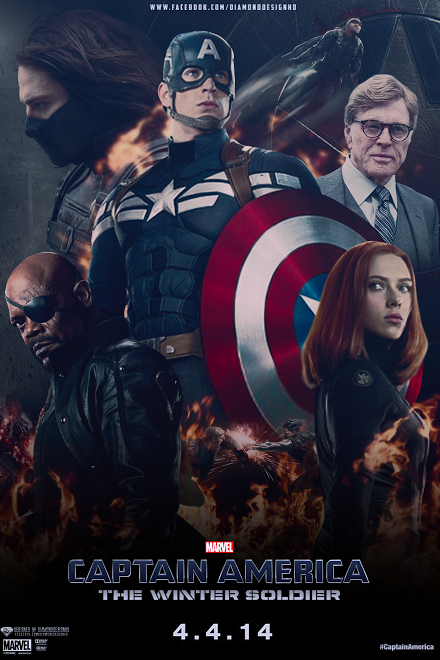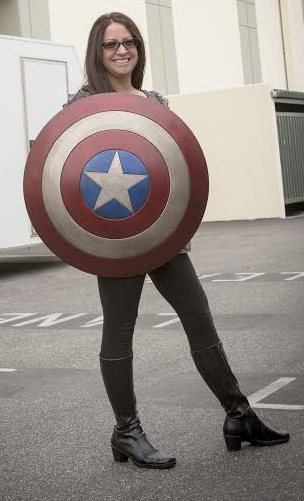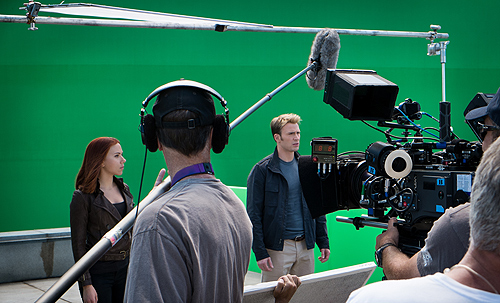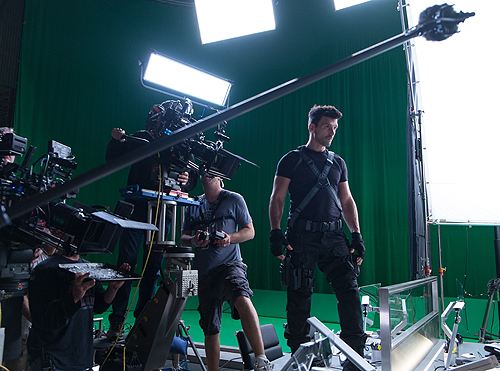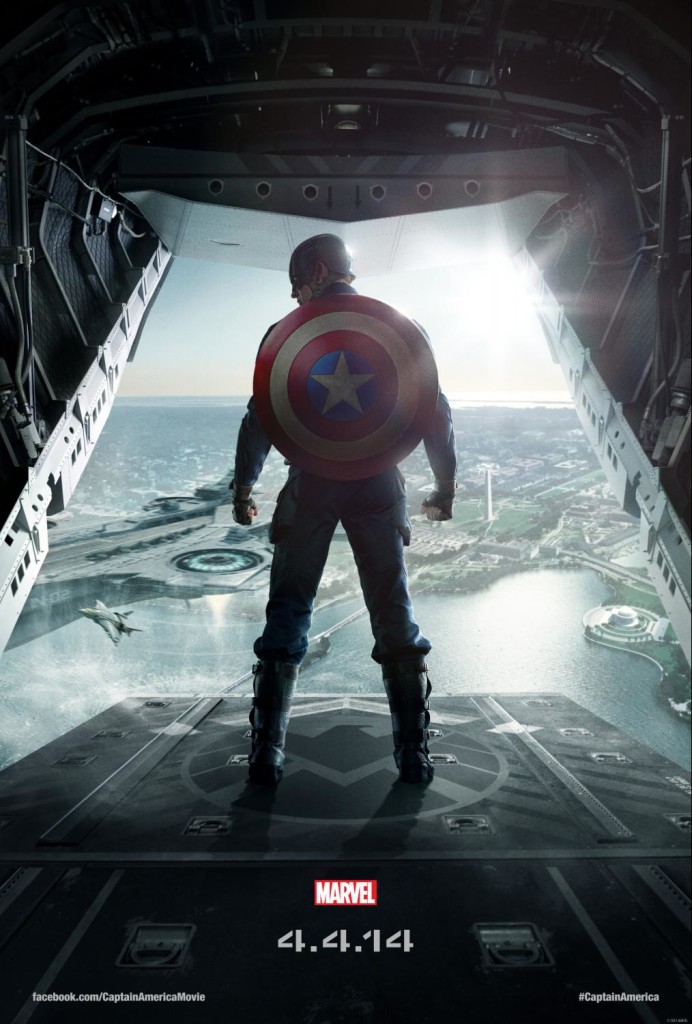 Guest Post by Mia Vodanovich
Guest Post by Mia Vodanovich
As someone who used to look forward to every Harry Potter midnight book release, I can confidently say that there has been no event more greatly anticipated in modern pop culture than the Avengers: Endgame movie premiere. Over ten years of film, billions of box office dollars, and more than three hundred thousand fanworks published on popular website Archive of Our Own, the Marvel Cinematic Universe has established itself as a staple in American film history. The movie releases on 4K Ultra HD, Blu-ray™, DVD and On-Demand beginning Aug. 13.
It is no wonder, then, that thousands of fans, within hours of Endgame’s official premiere, came online to voice their mixed feelings about a movie built up by eighteen predecessors, from Iron Man to Infinity War. Many fans were enthusiastic; many were disappointed; but the feeling that most resonated with at least quasi-die-hard fans like myself was a confusion and hurt in the treatment of characters we have loved for over a decade.
Avengers: Endgame was, by technical terms at least, not a bad movie. The pacing felt appropriate, there was a well-balanced mix of depth and humor, and, for the most part, the resolution sealed many of the questions raised throughout the film.
However, in the grand scheme of the cinematic universe so carefully crafted since 2008, the climax, the denouement of Three Phases of Marvel (Spider-Man: Far From Home notwithstanding), while it had moments of genuine shine and honesty, ultimately fell flat in retconning the very essences of characters an entire generation came to know and love.
I guess in summary, the very best parts of this movie revolve around family, while the very worst parts forget what family means.
As Tony Stark began Phases One through Three in the Marvel Cinematic Universe, it is Robert Downey Jr.’s Iron Man who completes them. The second opening scene of Endgame, where Tony and Karen Gillan’s Nebula, characters who’d never met prior to the events of Infinity War and now are stranded in the middle of space, spend their remaining hours of oxygen playing paper football, invokes the deep familial tone which follows them both through the rest of the movie.
This sense of family is appropriate and meaningful to his character: over the course of the Marvel movies to this point, Tony must overcome the hubris of his original role as the arrogant playboy and adopt the fatherly responsibility that comes with his hero mentorship of a young Peter Parker, played by Tom Holland. Of course, with Peter’s tragic death at the Infinity Gauntlet-clad hands of Thanos (Josh Brolin), the events of Infinity War, and of Captain America: Civil War before it, symbolize Tony’s failure not only to protect the family unit he’d started with fiancé Pepper Potts, as portrayed for the seventh time by Gwenyth Paltrow, but to keep together the Avengers family that was meant to protect the now ill-fated Earth.
For Tony Stark, Endgame is the grandest of family redemption stories. He slowly but surely reunites and reconciles with the members of his team, becomes a loving father to an adorably potty-mouthed and outstandingly intelligent daughter, and, in a brief time travel tryst, forgives the father who died at odds with a son too much like him. Tony’s arc comes to a fitting end when, in the most badass moment in perhaps the entire MCU, he sacrifices himself to take down Thanos and his lackeys, repeating the iconic words that launched him into superheroics: “I am Iron Man.” When he dies, he dies among family.
Family also plays a key part in this story for Nebula, who, while severely underutilized, receives a plotline that is equal parts painful and cathartic. Karen Gillan does a spectacular job embodying the effects of Thanos’s abuse on both versions of her character: Post-Snap Nebula has a hard time believing that she beats Tony so easily at paper football, while Pre-Snap Nebula is willing to sacrifice all the beautiful parts of her future (a relationship with her sister, independence from a father who essentially kidnapped her, a group of friends who she can begin to relate to) for a chance at the Mad Titan’s approval.
The symbolism of Post-Snap Nebula killing her former self to save her sister Gamora (Zoe Saldana) is, if a little heavy-handed, ultimately what the character needs. The death of the self represents the death of all the toxic ties Nebula had to her “adoptive” father. The only injustice to Nebula’s story, and it is an egregious one, is that in either of Thanos’s deaths in the movie, she is not the one to deliver the final vindicating blow.
Now, don’t get me wrong: Tony’s and Nebula’s family roles were not the only good parts of this movie. Paul Rudd is a joy in any role he undertakes, Scott Lang among them; Anthony Mackie’s Sam Wilson gets to assume the mantle of Captain America and may just get the appreciation he deserves; Brie Larson reprises her unfairly sexy role as Carol Danvers aka Captain Marvel, and in the second most badass moment in the movie, plows through Thanos’s air and land defenses with only a second’s warning.
Unfortunately, none of these things really make up for the cringeworthy pandering that directors Joe and Anthony Russo and writers Christopher Markus and Stephen McFeely have chosen to inflict on their audience. Joe Russo’s cameo as a gay man mourning in a Snapture support group feels like a feeble attempt at appeasing the many cries for LGBTQ representation in the MCU that easily could have been included with deleted scenes from Thor: Ragnarok, which adhered to the character Valkyrie’s comics counterpart and wouldn’t have felt nearly as disingenuous.
Furthermore, the “she’s got help” scene, where, during the fated final battle, every heroine apparently puts down whatever she was doing to escort Carol and the gauntlet across the battlefield, is physically nonsensical and provides absolutely no reason why these characters need to be together. Wouldn’t it be more efficient to play to the strengths of the team with which each woman is acquainted, than to try and fit in her abilities and weaknesses with a group of complete strangers? Granted, practicality isn’t often the focus of superhero films, but this quasi-feminist moment was less about female empowerment and more about showing female empowerment. It’s not about the women but about how much the studio loves women. That’s not feminism.
Speaking of practicality, I understand that the intricacies of time travel have become convoluted with every movie, TV show, book, or comic attempting to explain it. But it slowly becomes no surprise that the smug “we don’t need to explain it, just go with it” attitude that builds this weak pseudoscience is the same writing that reduces master’s degree Scott Lang, seven PhDs Bruce Banner (Mark Ruffalo), several times redeemed God of Thunder Thor Odinson (Chris Hemsworth), and loving father and repeat offending father figure Clint Barton (Jeremy Renner) into two shades of cartoony comic relief, a fatshaming caricature of PTSD, and a humorless assassin who incidentally only kills people of color.
I could go on about the ways that Chris Evans’s Steve Rogers suddenly abandoning the best friend he worked so hard to save, help recover, and acquit put to bed the entirety of Agent Carter and much of the Captain America movies (Bucky Barnes and Sam Wilson who? Sharon Carter who?); I could go on about how drastically the MCU’s treatment of anxiety attacks has changed from Iron Man 3 to Endgame; I could go on about the sacrifice of Scarlett Johansson’s Natasha Romanoff for the main purpose of man pain when she was the first of the Avengers post-Snap to actually make steps toward putting the family back together.
I could go on about how, for everyone but Tony and Nebula, the family the Avengers had found by Endgame is completely forgotten.
But these things have been said in many other movie reviews, by many other disappointed Marvel fans. All in all, I was disappointed with this movie’s writing and the way that it changed the characters who, to me and millions more, became something like family. This does not discredit the years of hard work and effort every actor, editor, production assistant, cinematographer, director, writer, and more, put into making the Marvel Cinematic Universe the Marvel Cinematic Universe.
And after all, pretty much every movie in the MCU is a screenplay of an adaptation of a comic book based on characters created decades ago. If we want to see something different in our panels, TVs, and big screens, it’s up to us to set the stage for the next set of Avengers and create our own endgame. It’s up to us to assemble.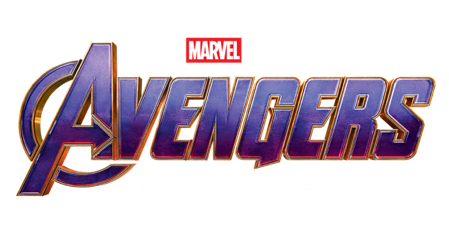
Avengers: Endgame releases on 4K Ultra HD, Blu-ray™, DVD and On-Demand beginning Aug. 13.
Bonus Material on Blu-ray & Digital:
- Remembering Stan Lee – Filmmakers and cast honor the great Stan Lee in a fond look back at his MCU movie cameos.
- Setting The Tone: Casting Robert Downey Jr. – Hear the tale of how Robert Downey Jr. was cast as Tony Stark in the original “Iron Man” — and launched the MCU.
- A Man Out of Time: Creating Captain America – Trace the evolution of Captain America with those who helped shape the loo
k, feel and character of this compelling hero. - Black Widow: Whatever It Takes – Follow Black Widow’s journey both within and outside the Avengers, including the challenges she faced and overcame along the way.
- The Russo Brothers: Journey to Endgame – See how Anthony and Joe Russo met the challenge of helming two of the biggest films in cinematic history … back-to-back!
- The Women of the MCU – MCU women share what it was like to join forces for the first time in an epic battle scene — and be part of such a historic ensemble.
- Bro Thor – His appearance has changed but his heroism remains! Go behind the scenes to see how Bro Thor was created.
- Six Deleted Scenes – “Goji Berries,” “Bombs on Board,” “Suckiest Army in the Galaxy,” “You Used to Frickin’ Live Here,” “Tony and Howard” and “Avengers Take a Knee.”
- Gag Reel – Laugh along with the cast in this epic collection of flubs, goofs and gaffes from set.
- Visionary Intro – Intro by directors Joe and Anthony Russo.
- Audio Commentary – Audio commentary by directors Anthony and Joe Russo, and writers Christopher Markus and Stephen McFeely.
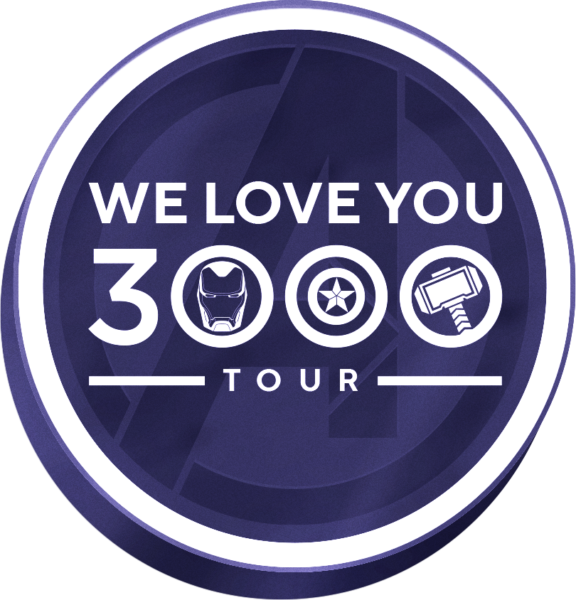
We Love You 3000 Tour
In celebration of the in-home release of Marvel Studios’ Avengers: Endgame, Marvel Studios and directors Anthony and Joe Russo have teamed up to launch the “We Love You 3000” Tour as a way to thank the fans who have invested so deeply in the Marvel Cinematic Universe (MCU), making it the single most successful franchise in film history! Marvel Studios will visit nine U.S. cities — beginning in San Diego at Comic-Con International on July 20 and ending in Anaheim at D23 Expo 2019 on August 23— greeting and treating fans at each tour stop. Follow the @Avengers on Twitter and visit https://www.marvel.com/live-events/avengers-endgame-we-love-you-3000-tour for more info.
WIN IT! Enter below for a chance to have your own copy of Avengers: Engame!

Mia Vodanovich is an English instructor by day and writer by night. She’s published poetry and short stories in a few local literary magazines, and comes up with sappy love stories about many of your favorite Avengers on AO3. Follow her on Instagram @the_galacticmermaid for infrequent shenanigans.
Movie sent for review, all opinions 100% my own.
